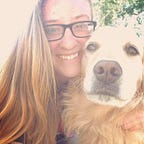The Antisemitic Air We Breathe
I left my small rural hometown ten years ago or so.
Sometimes, when I am feeling nostalgic for it, I go spelunking through old acquaintances’ Facebook feeds.
And I have to ask: is there something in Yates’ County’s water supply?
The pandemic revealed many political, social, and cultural differences but it also revealed a profound lack of knowledge about Jewish history, pain, and what fascism was and could be today — along with how profoundly our information systems have been corrupted by being hollowed out by corporate interests.
One of my family members came to visit me, and on our way back to the apartment, as we were talking about mask mandates, casually remarked, “Well the flight attendants weren’t Nazis about making us wear them.”
I cringed, but how do you respond to a family member when it’s been years since you’ve seen them?
A family acquaintance dove completely off the deep end. Her feed became a rabbit hole of Soros and Rothschild conspiracy theories about how the globalists are conspiring to control us all. We’re all sheep, in this world view, just like Jews getting on train cars to Auschwitz waiting to be slaughtered. It hit a particular low point when her friend started talking about Hitler one day. They all agreed: Hitler had some good ideas, minus the genocide — we’re sleepwalking our way into fascism though. We do not have to, under any circumstances, have to give Hitler credit for anything.
The final straw for me was an old soccer teammate posting a meme about NYC mandating vaccine cards to enter certain establishments. The meme at the bottom just said ‘Nazi”, comparing these mandates to Nazism.
Friends, colleagues, and yes, hometown acquaintances: things are not literally fascism because you don’t like them. However, it’s not just Yates County that is plagued with Holocaust revision.
It’s a testament to the mis and under-education of Americans about our role in World War II that these myths about what Nazis believed, and the power of social media to hollow out our information ecosystems to the point of radicalism.The comparison is specious — at best.
Millions of Jews did not simply “line up” to be sent to be slaughtered in concentration camps. We were rounded up, ratted out, and hounded mercilessly until Nazis and their enablers found where we were. Americans are rarely taught about Jewish resistance to Nazism during the Holocaust, and I think it’s one of the most important things to know about us. Being Jewish was essentially outlawed — every act of teaching Torah or praying was a small act that undermined the ethos of the Final Solution. We would outlive them, one prayer and drash at a time.
I think Americans overlook this aspect of Jewish history during World War II because it interferes with the hero’s narrative we tend to paint about our actions during the course of the war. American Holocaust education is limited towards American military actions towards the end of the war. We rarely, if ever, learn about how the US turned away ships filled with Jewish refugees, or that we had enforced specific quotas about how many Jews were to be allowed in per year.
I could go on. Others have gamely attempted to set the record straight, one article at a time, however: it’s on the social media giants to crack down on mis and dis information. A recent study from The Center for Countering Digital Hatred found that 80% of antisemitic social media posts were not taken down, despite being reported. This has been a noted phenomenon for years now, having been studied and reported by a myriad of researchers. These companies have struggled for years to manage the tsunami of bad faith
Anecdotally, many Jewish friends and myself have had content taken down incorrectly or our accounts flagged for hate speech when we respond to antisemitic bias — these platforms filters cannot and do not appropriately differentiate for context. Social media platforms, such as Facebook, TikTok, Instagram, and others loudly talk about their updated policies and procedures but fall woefully short of actually doing anything to curb it. They’re in a pickle of their own making of course: while they should be making their platforms safer for all their users, they make their money gathering data on users, even extremists. Shutting down those accounts means shutting off sources of revenue. There are no easy answers, especially when billions of dollars are at stake. We can look at things such as the #NoHateforProfit Campaign, California Jewish Caucus Chair Jesse Gabriel’s Assembly Bill 587, which would compel social media companies to “publicly disclose their corporate policies regarding online hate, disinformation, extremism, harassment, and foreign interference, as well as key metrics and data regarding the enforcement of those policies.”
Buckwild conspiracy theories are harder in the wild. Taking my temperature before engaging, making sure I am the best person to be speaking to someone or be in relationship with them to help educate, and knowing where the line between building a relationship and educating have been hugely impactful to me. I can’t say that every conversation has been successful or without frustration, but they have been worth having.
Unfortunately, in Yates County anti-Semitism isn’t just in the water. It’s in the air we breathe and the social media we consume — and it’s not just in my small hometown. In order to defeat it we need to come together to hold corporations accountable for chasing profit, not at the expense of users’ safety. We also hold each other accountable where it’s possible to educate and call in when we see bigotry happening.
